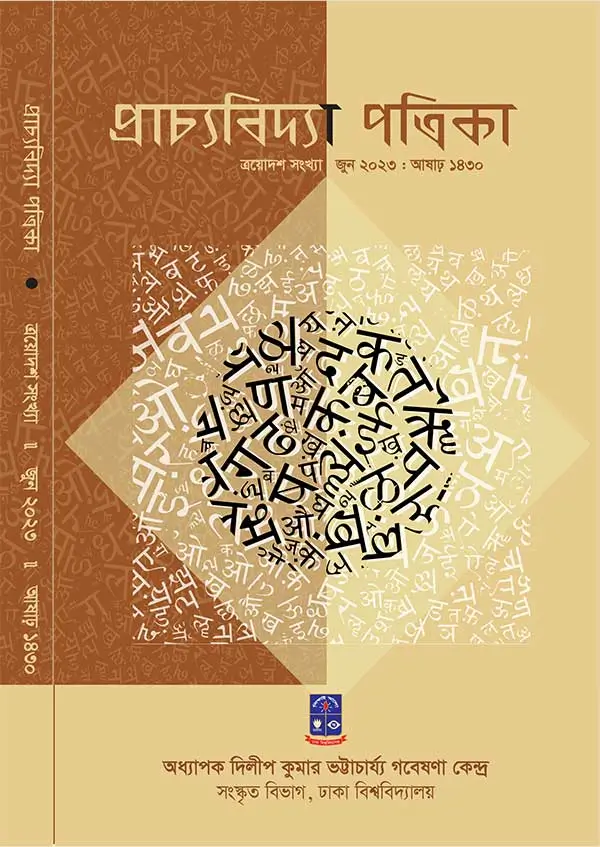
- Arpita Roy Chowdhury*
Published Date:
প্রাচ্যবিদ্যা পত্রিকা
ত্রয়োদশ সংখ্যা, জুন ২০২৩
DOI:
Abstract
Rabindranath grew up with a philosophical sense of life from childhood. Gitanjali is the product of that philosophical sentiment. The poet has beautifully explained that theory of Vedanta in pages of Gitanjali. The main theory of Vedanta is Brahman or Paramatma. This entire world is covered by the Supreme Being. God resides in every creature and inanimate object of this world. So according to Vedanta Philosophy, God exists within all human beings. So Rabindranath in every poem of his Gitanjali finds a way to know human perception. That is the path of happiness. Ego is a major obstacle to happiness in life. In Rabindranath’s poetry, that pride is washed away by tears. Rabindranath gave the message of renunciation of ego. True joy in life requires sacrifice. So renunciation is one of Rabindranath’s pursuits in life. Gitanjali is full of that ideal of sacrifice. Today we cry out for liberation. But liberation is not possible if life is built on selfishness and violence. So, Rabindranath sought liberation through dispassion. Gitanjali is illuminated by this renunciation and dispassion of Vedanta. How Gitanjali’s Vedantic Consciousness can emancipate today’s people – that is the summary of my research paper. Keywords: Gitanjali, Vedanta Philosophy, Ego, Happiness, Liberation, Consciousness.

